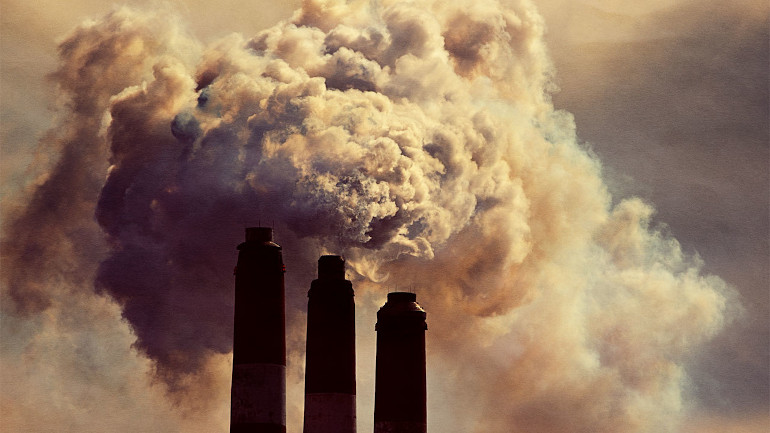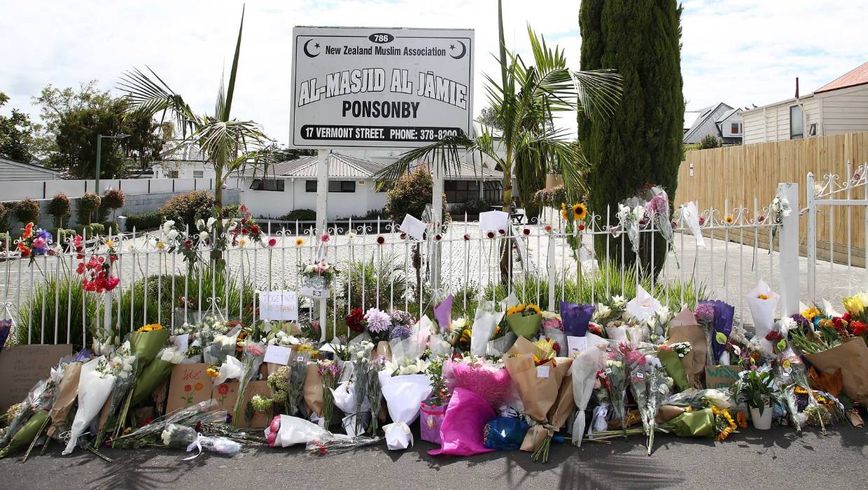Conor Payne and Chris Stewart are members of the Socialist Party (ISA in Ireland).
Many ecologists, activists and academics argue that an obsession with economic growth is the cause of our current ecological crisis and a commitment to “degrowing” the economy is the solution.
Too often, however, this discussion lacks sufficient class or anti-capitalist content, and workers are blamed for supposedly destructive “consumption patterns.” Instead, socialists should be clear that the cause of the climate crisis is the capitalist system and its incessant drive to accumulate profits, and that the only way to solve the crisis is to struggle for a socialist world where human need, including a sustainable relation to nature, comes before private greed.
Capitalism’s ‘’Boom and Bust’’ Cycle
Under capitalism, the driving force of the economy is the pursuit of profit. The competition between companies and even different capitalist powers for markets and resources means that this drive for profit is relentless and expansive. Therefore, capitalism also involves a continuous quest for economic growth.
At the same time, these companies will seek to “externalise” the cost of their activities, to leave them to be paid by someone else. The capitalist firm doesn’t care on what basis it grows; whether its products are useful or cause harm, or if its activities are environmentally sustainable.
Capitalism is a system of contradictions. It is a system based on nation states, while production and markets are global. This excludes global solutions and planning. Also, it’s based on private property with a few individuals holding power over production, investments and jobs. The capitalists get their profits by exploiting workers, as well as the resources extracted from nature in the labour process. The constant need to accumulate more profits means capitalism extracts more and more resources in increasingly destructive ways, ultimately leading to the depletion of soils, minerals, forests, the life in our oceans etc. — which undermines the system’s own sources of wealth.
Capitalism is increasingly coming up against the ecological barrier to its unrestrained development, as seen in mounting natural disasters, the 2021 shutdown of the power system in Texas, and a global pandemic, all at least partly attributable to capitalist society’s increasing destruction of nature.
As well as this, capitalism is a system that primarily organises investment through the chaos of the stock market, where investment is motivated only by the pursuit of profit. Today, capitalists increasingly choose to speculate with their wealth through complex financial products that have little relation to actual value in society — what Marx termed “fictitious capital.” This is because they can make more short-term profits here than they can through actual productive investment.
At the same time, the desire of the capitalists to drive down the share of wealth that goes to the working class means that workers collectively are not able to buy all the goods the capitalists put to market. This is one way that capitalist growth eventually comes up against its limits and throws the system into crisis and recession. Capitalism is now experiencing a global economic crisis for the second time in just over a decade.
When growth was rooted in productive investments, for example in the economic upswing following World War 2, it often led also to increases in working class living standards, although workers’ gains were usually dwarfed by those of corporations and the rich. In that period capitalist governments, especially in the West, granted social reforms in the interests of working people, such as pensions, public health and education services, welfare protections etc. This was done not out of any innate kindness but as a mechanism to stave off potential revolutionary challenges to the system from the working class.
However, in the more recent decades of neo-liberal capitalism, the basis for economic growth has been precisely the reduction of the share of wealth going to the working class, rather than developments in production. Capitalism has suppressed wages, gutted public services, and eroded economic security. Inequality has exploded as the gains of economic growth congealed at the top. At the same time, the capitalists promoted more and more consumption fueled in significant measure by debt. Through capitalist globalisation, production has been spread across the world, to maximise profits by finding the best places to exploit workers and the environment. This means that today capitalist economic growth often means no real gain for working class people and a disaster for the environment.
The recovery from the great recession of 2008 was largely a joyless one. In Ireland and elsewhere, despite nominally positive growth rates, the recovery did not alter the reality of low pay, precarity and housing distress. In Britain, the Office of National Statistics found that, despite a decade of “growth,” real wages only recovered to the level of 2008 at the end of 2019 — just in time for the next crisis! At the same time, the numbers on zero hours contracts were the highest on record, at just under a million workers.
Meanwhile, the mounting burden of ecological breakdown will not be shared equally; as those with wealth move to insulate themselves from the consequences of the economic system they have profited from. As unprecedentedly low temperatures drove catastrophic power outages in Texas, working-class, poor and minority neighbourhoods bore the brunt of the power cuts while empty skyscrapers lit up the city skyline.
Karl Marx said that under capitalism: “Accumulation of wealth at one pole is, therefore, at the same time accumulation of misery, agony of toil slavery, ignorance, brutality, mental degradation, at the opposite pole.” This sums up the capitalist economy today. At the same time, of course, workers are still liable to pay the price when the system goes into recession. The reality is that at no stage in its cycle of boom and bust, does the capitalist economy operate in the interests of the working class.
An Economy for Need, Not Greed
While economic growth today undoubtedly drives carbon emissions and all forms of environmental destruction upwards, contraction on a capitalist basis does not deliver an equivalent let up in the intensity of environmental destruction. According to one study, examining 150 countries over the period of 1960–2008, a 1% increase in GDP meant on average a 0.73% increase in carbon emissions, while a 1% decline in GDP meant only a 0.4% decrease in carbon emissions. This is because the environmentally inefficient goods and infrastructure created during a boom generally continue in use during a downturn. Less consumption in itself can never deliver the drastic reduction in carbon emissions needed. Instead, we need a fundamental change of how production is organised and in whose interests.
This means that without a planned transition to a sustainable means of production, driven not in the interests of private profit, but by social need the tendency will be for ever increasing emissions. So the debate about growth and degrowth is useless unless linked to the need to bring an end to the chaos of the capitalist market.
The purpose of the capitalist economy is to deliver increased profits for the bosses. The purpose of the economy under socialism would be to fulfill human needs in a sustainable way. This means taking the key sectors of the economy out of the hands of big business and bringing them into public ownership, under democratic control. This means we can reorganise the energy industry, transport, agribusiness and production overall on a planned basis, in the interests of both people and the planet.
A World of Waste
Capitalist production involves enormous waste.
690 million people around the world went hungry in 2019, with the UN Food and Agriculture Organisation projecting that the impact of the pandemic could add a further 132 million people to that number. Yet, during the pandemic, the closure of restaurants and other disruptions cause the widespread dumping of perfectly good produce. Even in “normal” times, while the world already produces enough food to feed everyone, a minimum of one third of this food is lost or wasted. Many things cause this, but the status of food as a commodity to be sold for profit is at the centre of the problem. Agribusiness leaves food to rot in the fields to keep prices high, supermarkets throw out edible food they don’t think they can sell, good food is even discarded because its size or shape makes it “unmarketable.”
In 2020, approximately $569 billion was spent on advertising, projected to grow to $612 billion this year. You can add to this, the resources spent on sales promotion, public relations, direct marketing and other forms of corporate self-promotion. The vast bulk of this money is wasted, spent not to inform us but to convince us to buy as much as possible or to buy one identical brand of a product over another, often preying on our anxieties and insecurities in order to create false needs in our minds that can be “solved” through consumption. Because capitalism doesn’t produce for need but for profit, advertising and marketing become bound up with the process of production itself.
The packaging industry is now the third largest on earth and much packaging is not mainly functional but a form of product promotion. Packaging costs amount to somewhere between 10 percent and 40 percent of total product cost.
Planned obsolescence means that products are consciously not built to be durable and must be frequently replaced by consumers. This includes fast fashion made from low quality material and electronics with batteries that can’t be replaced, contributing to 500 million tonnes of E-waste in 2019.
There are a plethora of other industries and products of no use to working-class people: from the armaments industry producing weapons of death, to luxury goods like private jets — an industry which has benefitted from a raft of new, wealthy customers seeking to avoid commercial flights during the pandemic.
As a result of yet another capitalist speculative bubble, the cryptocurrency Bitcoin now consumes more energy than all of Argentina, a country of 45 million people. Competition between firms means that research and development efforts are often duplicated, and patents stop the spread of useful technology for the sake of maximising profit.
As we can see, the mountains of waste produced under capitalism are not a product mainly of the demands of consumers, but instead serve the needs of capitalist profiteering. The structure of capitalist society itself also partly conditions our consumer needs. Those who don’t live near reliable public transport “need” to buy cars, people on low incomes will “choose” to buy fast fashion etc.
To create more and more products that aren’t needed or will be sent rapidly to landfill, or to generate more and more artificial demand is all ‘growth’ in capitalist terms, but it isn’t human progress. A democratic, planned socialist economy could do ‘more with less’ as part of a planned ecological transition — retooling useless or destructive industries, eliminating duplication, overproduction and planned obsolescence, focusing on fulfilling needs not generating artificial wants and transforming agriculture, transport and energy production on a sustainable basis. In such a system whole industries, communities and cities would be planned democratically and on a completely different basis, putting an end to capitalist overproduction and waste and allowing for a more rational allocation of resources.




